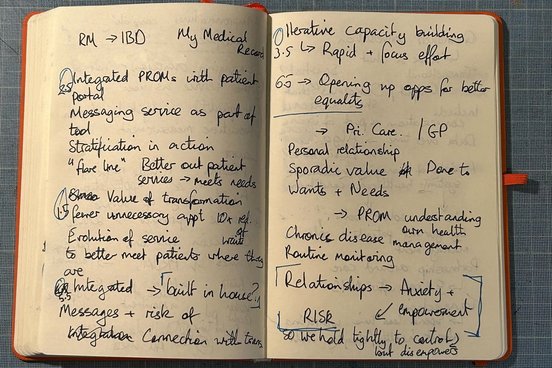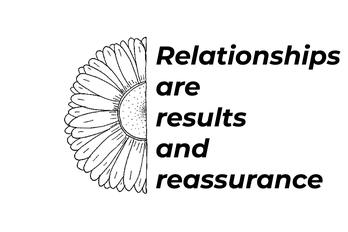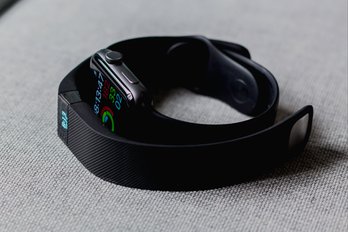At Unboxed, we’re committed to making people’s lives better by improving the interfaces between service users and healthcare professionals. One of the areas we’re particularly interested in is PROMs - patient reported outcome measures.
We decided to invite a carefully selected group of healthcare professionals to talk about PROMs and how they might work - or are already working - in specific contexts.
To kick off the session, we heard three lightning talks: from Melanie Martin, associate director, Guildford and Waverley Health and Care Alliance, Unboxed designer Laura Smith, and Dr Markus Gwiggner, consultant gastroenterologist at University Hospital Southampton.
A thoughtful question and answer session followed, in which we discussed various issues, such as how applicable PROMs are to primary care, the importance of relationship building between service users and clinicians, and the challenges of digital inclusion.
One quote that stood out was the challenge of patients feeling PROMs are somehow second best - the fear that: ‘“Outpatient appointments are like gold-dust" and the system is impenetrable if you fall out of it.”
Another theme that emerged was the tendency to focus on digital inclusion at all costs, whereas another view is that time freed up by people with higher digital literacy using PROMs could then be used to provide personalised attention to those in digital poverty.
We also spoke about the need to view PROMs in the context of wider services rather than a standalone solution.
Here are some of the key points that emerged from the discussion:
- PROMs enable a shift in relationships, and must be part of a transformation in service, not a bolt-on to existing ways of working
- it can be challenging to engage clinicians. To overcome this, we need to consider the whole service and all the users
- it is important to integrate with existing tools and services
- PROMs can be part of iterative service improvement using a 'test+learn' approach, focusing effort with a defined goal and time frame to help move things along
- there is a perception of risk from providers who are nervous about opening up a route for conversation, however the reality is that when done right PROMs empower patients to be more in control of their health and less reliant on resource intensive interventions (such as appointments) digital inclusion is important: we need to shift the ways of working to enable those who can do digital and to reach out further to those who can't
- PROMs can reduce the anxiety of navigating healthcare system and managing a healthcare condition
- data collected might enable population and individual insights, monitoring, learning and early intervention, if done right
- PROMs enable patient choice (and should be part of mix of ways to access healthcare) - we shouldn't be afraid to offer choice to be more efficient and better served in terms of healthcare
The session lasted an hour, and we could easily have continued the conversation for another hour. Thanks to all who participated: it has given us plenty to think about and absorb.
We are planning further round tables on different topics. If you would like to be part of upcoming discussions, please get in touch with us at https://unboxed.co/contact/.





